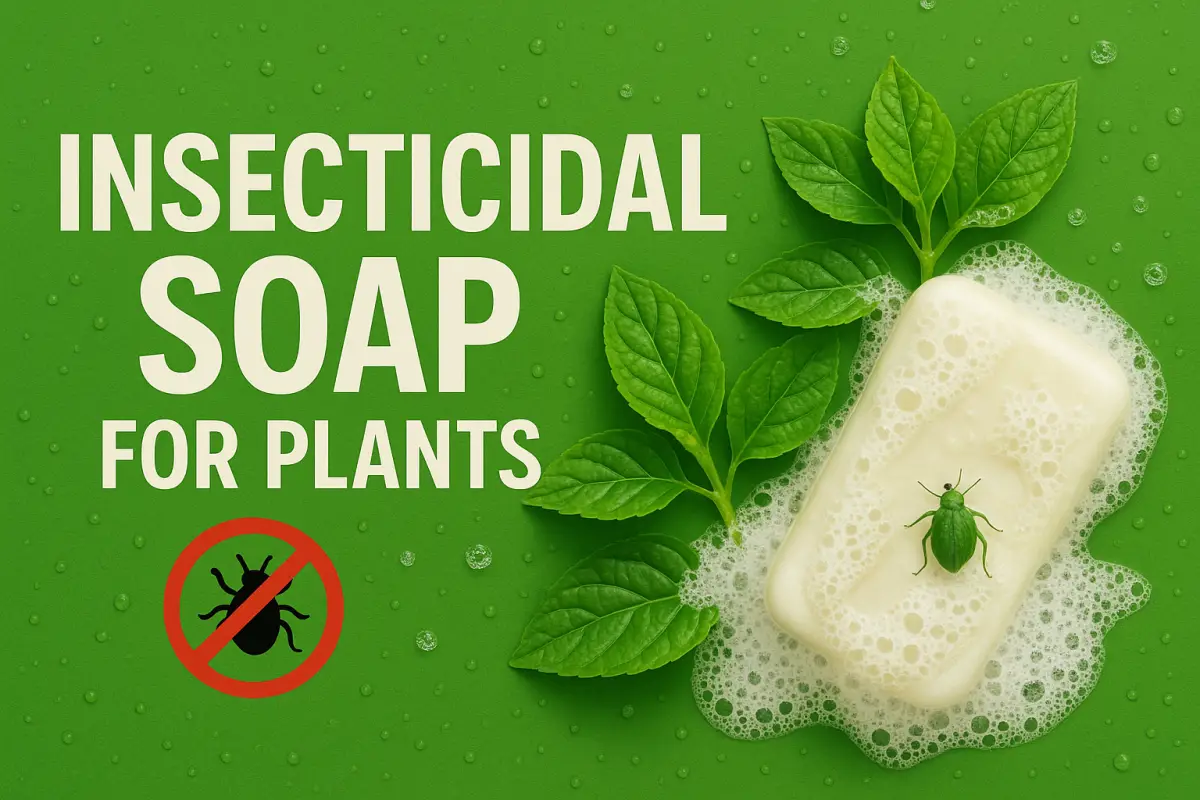Insecticidal soap is a safe and effective method to combat common garden pests without resorting to harsh chemicals. Ideal for organic gardening, it targets soft-bodied insects like aphids, spider mites, and whiteflies, ensuring your plants remain healthy and thriving.
What Is Insecticidal Soap?
Insecticidal soap is a specially formulated solution made from potassium salts of fatty acids. Unlike regular household soaps or detergents, these soaps are designed to control insect pests while being gentle on plants, humans, and the environment. They work by penetrating the insect’s outer shell, disrupting cell membranes, and causing dehydration, leading to the insect’s death.
Benefits of Using Insecticidal Soap
- Eco-Friendly: Safe for use around children, pets, and beneficial insects when applied correctly.
- Residue-Free: Leaves no harmful residues, making it suitable for edible plants.
- Cost-Effective: Affordable and easy to make at home.
- Targeted Action: Effective against a range of soft-bodied pests without harming the plant.
Common Pests Controlled by Insecticidal Soap
Insecticidal soap is particularly effective against:
- Aphids: Small, sap-sucking insects that can distort plant growth.
- Spider Mites: Tiny arachnids that cause stippling and yellowing of leaves.
- Whiteflies: Small, white-winged insects that feed on plant sap.
- Mealybugs: White, cottony pests that cluster on stems and leaves.
- Scale Insects: Hard or soft-bodied insects that attach to stems and leaves.
How to Make Homemade Insecticidal Soap
Creating your own insecticidal soap is simple:
Ingredients:
- 1 tablespoon of pure liquid soap (e.g., Castile soap)
- 1 quart (4 cups) of water
- Optional: 1 tablespoon of vegetable oil to help the solution adhere to leaves
Instructions:
- Mix the soap and water thoroughly in a spray bottle.
- Add vegetable oil if desired and shake well.
- Use immediately for best results.
Application Tips
- Timing: Apply in the early morning or late evening to prevent leaf burn.
- Coverage: Ensure thorough coverage, especially on the undersides of leaves where pests often reside.
- Frequency: Repeat every 5-7 days as needed, especially after rain.
- Testing: Before widespread application, test on a small area to ensure plant tolerance.
Precautions
- Avoid High Temperatures: Do not apply when temperatures exceed 90°F (32°C) to prevent plant damage.
- Sensitive Plants: Some plants, like ferns and succulents, may be sensitive. Always test first.
- Beneficial Insects: While insecticidal soap is selective, it can harm beneficial insects if they are directly sprayed. Apply carefully.
Commercial Options
For those who prefer ready-made solutions, several commercial insecticidal soaps are available:
- BioAdvanced Insecticidal Soap: Ready-to-use formula effective against a variety of pests.
- Garden Safe Insecticidal Soap: Suitable for organic gardening and safe for use on edibles.
Conclusion
Insecticidal soap offers a natural, effective, and affordable way to protect your plants from common pests. Whether you choose to make your own or purchase a commercial product, it’s a valuable tool in maintaining a healthy, thriving garden.

